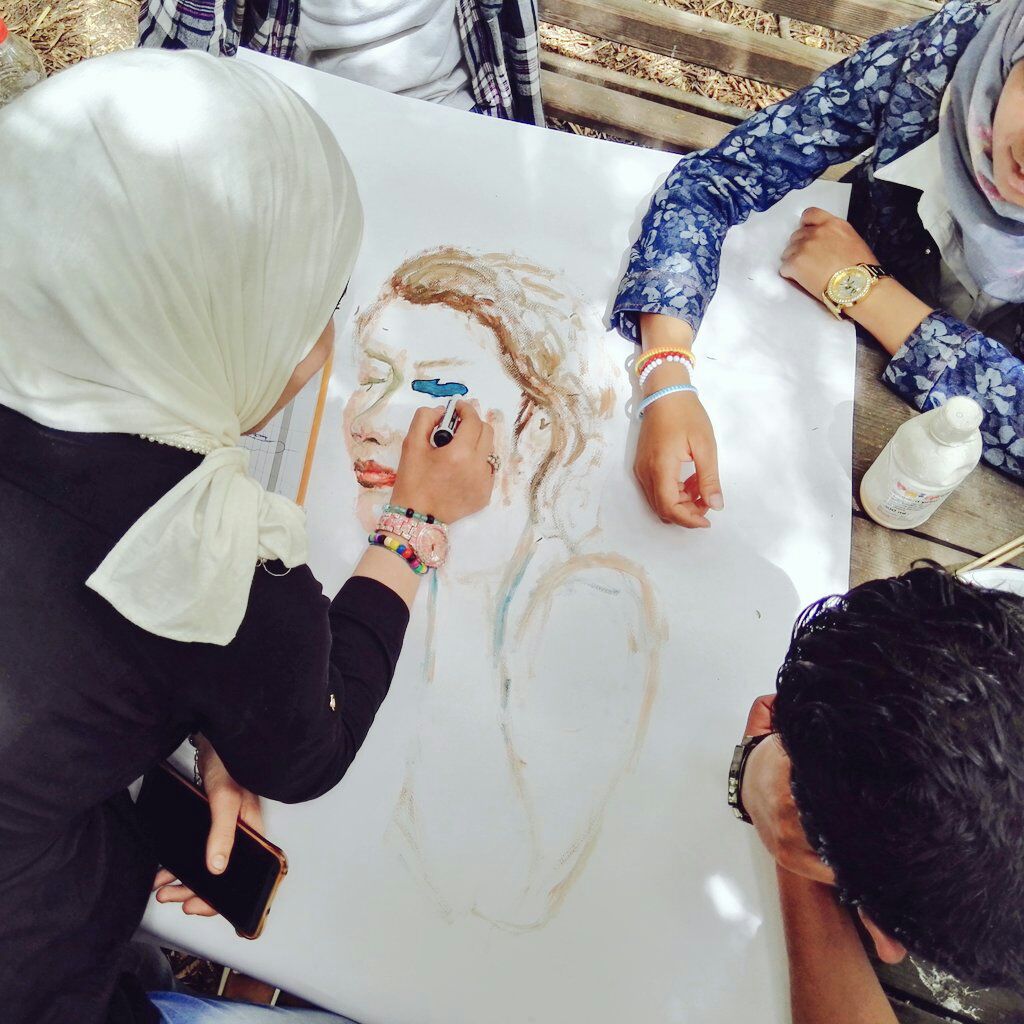The second annual EcoPeace Middle East Regional Alumni Seminar took place over three days in early April, bringing together young leaders that had formerly been recruited to participate in EcoPeace’s Good Water Neighbors project. These youths have grown into water trustees for their regions, learning to contribute essential leadership to their communities. Those with long-standing relations with the organization requested an additional seminar to hone their skills and discover new ways to remain involved. EcoPeace excitedly responded by crafting a program aligned with the Good Water Neighbors core mission of environmental peacebuilding through training youth to take an active role in leading their community and fostering a stronger connection with the region through coexistence and cooperation.

In a region devoid of a lasting peace, this was an incredible opportunity for youth from Israel, Palestine, and Jordan to focus on the environmental concerns that unite them. While some met in previous programs, the seminar presented the opportunity to make new friends and see other perspectives. As alumni participants, each was required to demonstrate leadership, initiative, and involvement. Directors actively sought active, effective, devoted, and self-motivated participants in hopes of educating and shaping the environmental leaders of the future. One project organizer said the acceptance and understanding of mutual interests were the most important outcomes of the camp. This was clearly accomplished; the feedback from the participants highlighted their enjoyment of other alumni. Participants from each region were testament to the effectiveness of the seminar. An Israeli reflected, “I had an amazing experience, and I enjoy being with people I met there the most.” A Jordanian concurred, “I enjoyed the interactions with others and sharing our knowledge together.” A Palestinian agreed, “It was a great meeting, I got valuable knowledge to improve my potential to be an environmental leader in my community.”

EcoPeace used this seminar as an opportunity to pursue product branding around sustainability. Leaders sourced from their own local communities were presented with further information sessions that would lead to discussion and opportunities to produce original work. They highlighted the region’s communal challenges in order to motivate cooperation to identify collective strengths. After the program presenters gave examples of this cross-border basin such as the Medjool Dates, Hebron Grapes, as well as categories such as art, history, and nature, participants reflected on such issues and created their own content:
- The first group made a film where participants acted as if there was no room at the Dead Sea hotels so they built their own using recycled and sustainable materials. They created the tagline, “Let’s make salty sweet!”
- The second group made a music video using the tune of Queen’s “We Will Rock You” with their own lyrics, singing “We Can Change It” in various languages. Example: Don’t give up, we will clean the environment, plant and recycle. We will, we will change it! change it!
- The art group harnessed the local traditions to brand cosmetics such as kohl and henna by using these mediums to paint on an existing advertisement and making it reflect the region’s heritage.
- A group wrote a mock newspaper article explaining importance of revitalizing the Jordan River in order to preserve and restore the Dead Sea.
- Finally, using their knowledge of the Madaba map, students gave a speech about taking “A Tour to the Center of the World”, harking back to the ancient portrayal of the region’s focal point.

The presentations resonated with the alumni, one of which said, “I now know that we somehow share the same environment and any pollution in any of the regions will affect the other regions so we have to cooperate in keeping it from pollution also we have to share our environmental resources so that each environment can benefit from it and we have to spread these facts among our communities.” An Israeli participant added, “I learned that the three cultures are very similar to each other, but yet very different. I learned that we all together can see eye to eye yet there are things that are blocking our view.”
Although the significance of the content created might go unnoticed in any other setting, the positive value of these products should not be overlooked considering the conflict rife region in which these seminars are conducted. Testament to this, the Israeli community coordinator at the event said that seeing Arabs and Israelis singing peace songs together reflected the atmosphere of mutual cooperation, creativity, and building trust. She reflected that it was a “very profound experience.”

The participants ambition will undoubtedly have a lasting impact compounded by the influence of the seminar. One Israeli participant expressed her interest in creating awareness. Another wrote, “I went back home with a lot of knowledge and enthusiasm to continue doing good things for my environment and to keep trying to raise awareness among the all the people around me about maintaining a clean environment as much as possible and try to save water.” Another who already created a group at her school hopes to apply her new experiences there. A Jordanian participant feels a sense of responsibility, “the value to sustain our various environmental resources no matter what and how we share despite our different cultures [is] the duty of saving our shared environment.”
The seminar utilized young minds to brainstorm new ways of branding sustainability while simultaneously educating the youth, teaching leadership skills, and promoting co-existence. EcoPeace looks forward to working with these young leaders in their future initiatives.
Amanda Lynk is an intern at the Tel Aviv office of EcoPeace Middle East while she studies for her MA in Conflict Resolution and Mediation.